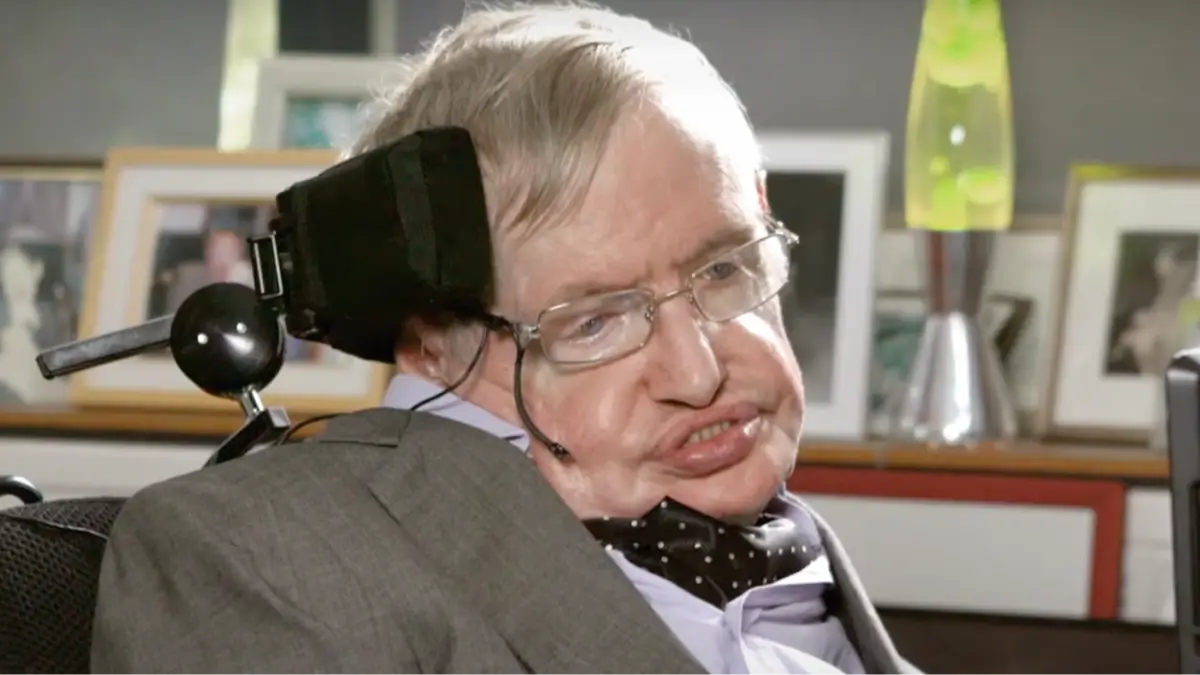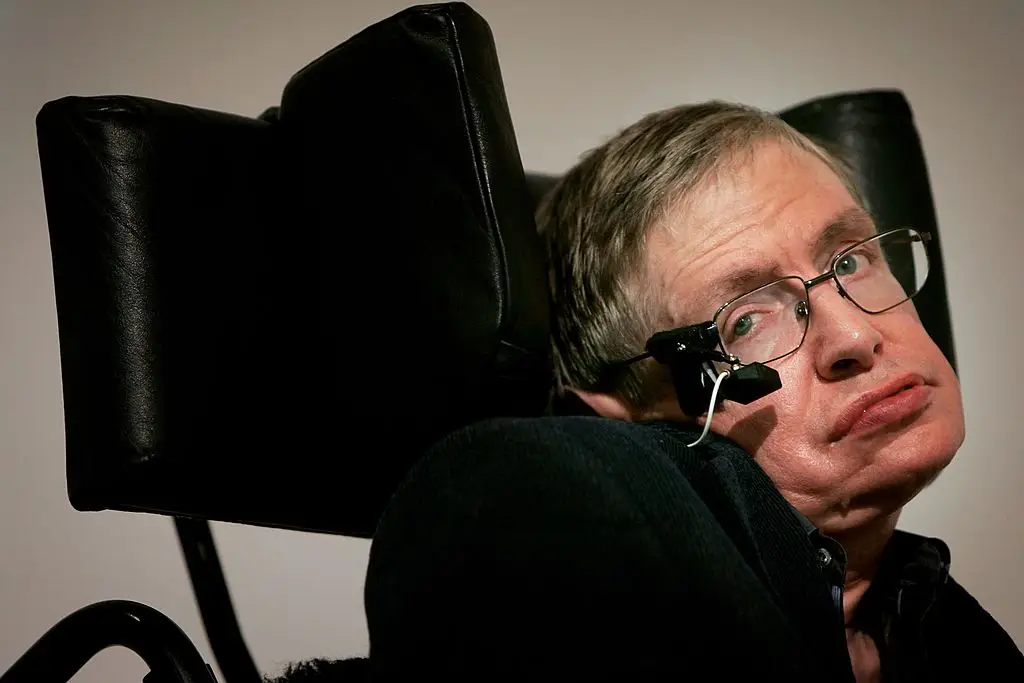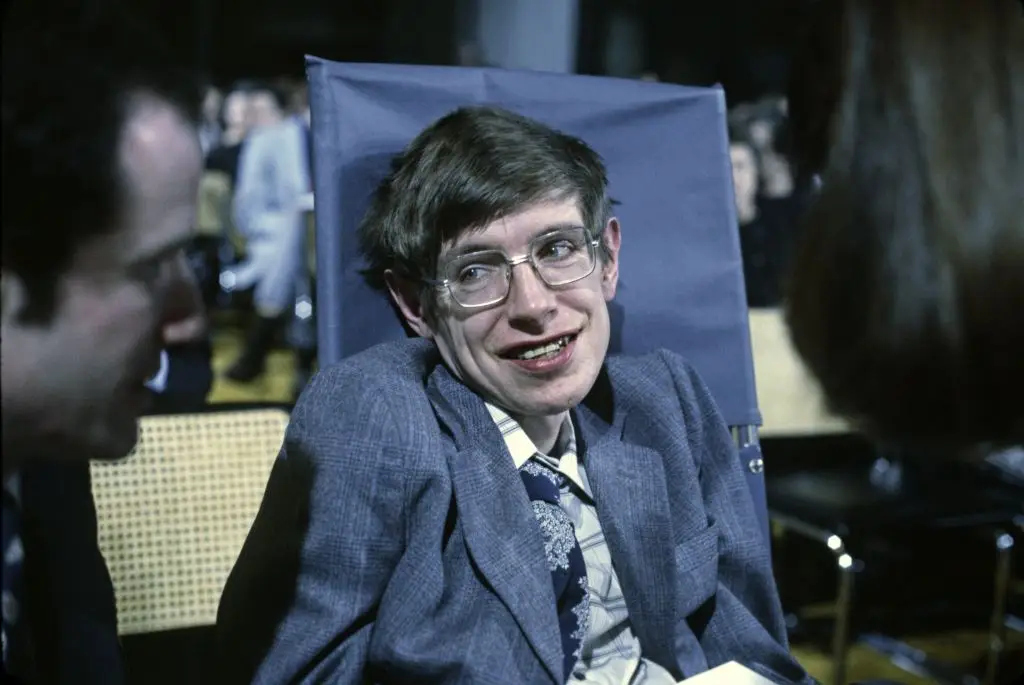
Stephen Hawking had a clear, simple answer when asked what came before the Big Bang.
Hawking, who died at the age of 76 in 2018 after a lengthly battle from a rare form of motor neurone disease, certainly had a way with words.
The genius physicist, cosmologist and British professor at the prestigious University of Cambridge, shot to fame for his mind-blowing works in the fields of general relativity and quantum gravity.
Some of his most famous scientific theories concern black holes which in his supposed controversial theoretical prediction, said emit radiation, and later in his career he introduced the idea of a micro black hole.
Advert
It's fair to say Hawking knew what he was on about, with a BA in physics and PhD in mathematics and theoretical physics to prove it, which is why he was put to answer one of humankind's greatest question: What came before the universe began almost 14 billion years ago?
Astrophysicist Neil deGrasse Tyson on his show StarTalk actually asked him: "So, Stephen, everyone wants to know. What was around before the Big Bang?"
And without skipping a beat, Hawking replied bluntly: "Nothing was around before the Big, Big Bang."
However, he did offer us some kind of explanation, though you might need a cosmology degree to understand.
Hawking said: "According to Einstein's General Theory of Relativity, space and time together form a space-time continuum or manifold, which is not flat but curved by the matter and energy in it."
He went on to clarify that he adopted a 'Euclidean approach to quantum gravity to describe the beginning of the universe'.
"In this, ordinary real time is replaced by imaginary time which behaves like a fourth direction of space.

"In the Euclidean approach, the history of the universe in imaginary time, is a four-dimensional, curved surface like the surface of the Earth, but with two more dimensions."
Hawking continued that he and Jim (James) Hartle, an American theoretical physicist who died in 2023, had proposed a 'no boundary' condition - 'that the boundary condition of the universe is that it has no boundary'.
If you're just as confused as I am, Hawking clarifies that this essentially means the 'space time is a closed surface without end, like the surface of the Earth.'
"One can regard imaginary in real time as beginning at the South Pole, which is a smooth point of space-time where the normal laws of physics hold.
"There is nothing south of the South Pole so there was nothing around before the Big Bang," he concluded.

The perhaps not-so-comforting revelation came as Hawking's novels similarly resonated or provided answers to millions or people around the world with his theories and frank answers.
His 2002 book, The Theory of Everything: The Origin and Fate of the Universe, has gone to sell more than 25 million copies in 40 different languages across the world.
Meanwhile, his A Brief History of Time book shot to the Sunday Times bestseller list for a record-breaking 237 weeks, while another novel, published seven months after his death, titled Brief Answers to the Big Questions, appeared to shed light on some polarising subjects, like whether God exists.
Hawking was diagnosed with Lou Gehrig's disease (ALS), an early-onset slow-progression motor neurone disease when he was just 21.
In the decades that followed, he continued his honorable work in science, eventually communicating through a speech-generating device controlled by a single cheek muscle, and continued to blow everyone's minds with his unmatched wisdom on many of the wonders of the universe.
Topics: Space, Science, World News